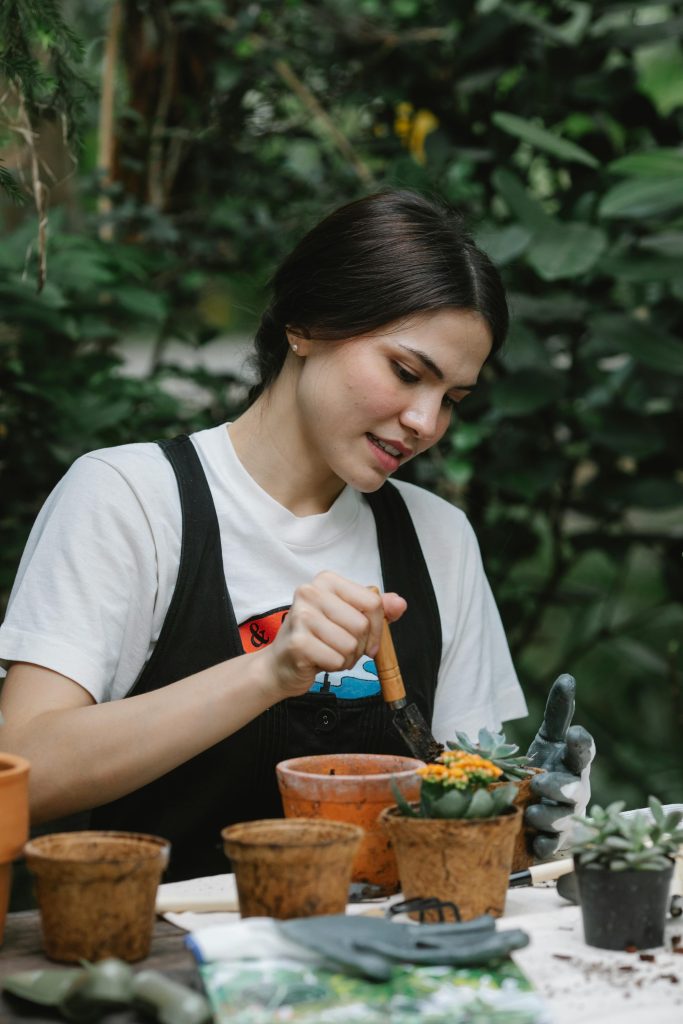Table of Contents
Home gardening has surged in popularity, driven by a mix of environmental consciousness, health trends, and the desire for self-sufficiency. As urban spaces become more congested and people seek to reconnect with nature, gardening has emerged as a rewarding and accessible hobby. From small balcony planters to expansive backyard gardens, home gardening offers a range of benefits and opportunities for individuals and families alike. This article explores the reasons behind the rising popularity of home gardening, its advantages, and the future trends shaping this green movement.

The Rise of Home Gardening
The resurgence of home gardening can be attributed to several key factors:
- Environmental Awareness: Growing concerns about climate change and environmental degradation have prompted many to adopt more sustainable practices. Home gardening allows individuals to reduce their carbon footprint by growing their own food and minimizing reliance on store-bought produce, which often involves extensive transportation and packaging.
- Health and Wellness: The growing emphasis on health and wellness has led to a greater interest in organic and locally-sourced food. Gardening provides access to fresh, chemical-free produce and encourages healthier eating habits. Additionally, gardening is a physical activity that promotes exercise and can reduce stress, contributing to overall well-being.
- Economic Benefits: Gardening can be a cost-effective way to supplement grocery bills. Growing fruits, vegetables, and herbs at home reduces the need for store-bought produce, which can be expensive. Additionally, home gardeners often find satisfaction in saving money while cultivating their own food.
- Self-Sufficiency and Resilience: The desire for self-sufficiency and resilience has gained prominence, particularly in times of uncertainty. Home gardening offers a sense of control over food sources and can serve as a valuable skill during economic or supply chain disruptions. It also provides an opportunity for individuals to become more connected with their food.
- Community and Social Interaction: Gardening has become a social activity, fostering connections within communities. Community gardens, gardening clubs, and online gardening forums offer opportunities for social interaction, knowledge sharing, and collaborative projects. These connections help build a sense of community and support.
- Urbanization and Space Constraints: As urbanization continues to expand, more people are living in apartments or homes with limited outdoor space. Innovations in container gardening, vertical gardens, and indoor gardening have made it possible for city dwellers to participate in gardening despite space limitations.
Benefits of Home Gardening
Home gardening offers a multitude of benefits that contribute to its growing popularity:
- Health and Nutrition: Growing your own fruits, vegetables, and herbs ensures access to fresh, nutritious produce. Home-grown food is often richer in vitamins and minerals compared to store-bought alternatives, which may lose nutrients during transportation and storage. Additionally, gardening promotes physical activity and mental well-being, reducing stress and improving overall health.
- Environmental Impact: Home gardening contributes to environmental sustainability by reducing the carbon footprint associated with food production and transportation. It also promotes biodiversity by providing habitats for pollinators and other beneficial insects. Using organic gardening practices minimizes chemical runoff and supports soil health.
- Educational Opportunities: Gardening provides valuable educational experiences for individuals of all ages. It teaches children about plant biology, ecology, and the importance of sustainability. Adults can learn about different gardening techniques, soil management, and the impact of climate on plant growth.
- Aesthetic and Recreational Value: Gardening enhances the aesthetic appeal of homes and outdoor spaces. Well-maintained gardens can serve as beautiful retreats and recreational areas for relaxation and leisure. Gardening also offers a creative outlet for design and artistic expression.
- Economic Savings: Growing your own produce can lead to significant savings on grocery bills. Home gardeners can reduce expenses related to purchasing fruits, vegetables, and herbs. Additionally, gardening can be a cost-effective hobby, with many low-cost or DIY solutions available for tools and supplies.
- Resilience and Independence: Gardening fosters a sense of independence and self-sufficiency. It provides an alternative food source and enhances personal resilience by teaching valuable skills. During times of economic uncertainty or supply chain disruptions, home gardening can offer a reliable food supply.

Trends Shaping Home Gardening
Several trends are shaping the future of home gardening:
- Urban and Container Gardening: With limited space in urban environments, container gardening and vertical gardens are gaining popularity. These techniques allow city dwellers to grow plants in small areas using pots, hanging baskets, and wall-mounted planters. Innovations in urban gardening make it possible to cultivate a wide range of plants, even in compact spaces.
- Indoor Gardening: Indoor gardening, supported by advances in grow lights and hydroponic systems, is becoming more accessible. Indoor gardens allow individuals to grow herbs, vegetables, and flowers year-round, regardless of outdoor weather conditions. This trend is particularly popular among those with limited outdoor space.
- Organic and Sustainable Practices: The emphasis on organic and sustainable gardening practices is growing. Home gardeners are increasingly adopting techniques such as composting, rainwater harvesting, and natural pest control. These practices support soil health, reduce environmental impact, and promote long-term sustainability.
- Technology Integration: Technology is enhancing gardening experiences through smart gardening solutions and apps. Devices such as smart irrigation systems, plant sensors, and garden management apps provide real-time data and automation, making gardening more efficient and user-friendly.
- Community and Social Gardening: Community gardens and gardening clubs are expanding, fostering social connections and shared learning experiences. These communal spaces provide opportunities for collaboration, knowledge sharing, and support. Online forums and social media groups also facilitate virtual communities of gardeners.
- Focus on Edible Landscapes: The trend towards edible landscapes combines aesthetics with functionality. Home gardeners are incorporating edible plants into ornamental designs, creating beautiful and productive gardens. This trend promotes the integration of food production with landscape design.
Challenges and Considerations
Despite its many benefits, home gardening presents some challenges:
- Time and Effort: Gardening requires time, effort, and commitment. Maintaining a garden involves regular tasks such as planting, watering, weeding, and harvesting. Busy individuals may find it challenging to dedicate the necessary time to gardening.
- Pest and Disease Management: Managing pests and diseases can be a challenge for home gardeners. Identifying and addressing issues promptly is essential for maintaining plant health and productivity. Organic and integrated pest management strategies can help mitigate these challenges.
- Climate and Soil Conditions: Gardening success depends on climate and soil conditions. Different plants have specific requirements related to temperature, sunlight, and soil type. Understanding local conditions and selecting appropriate plants is crucial for successful gardening.
- Initial Costs: While gardening can be cost-effective in the long run, there may be initial expenses for tools, seeds, soil, and other supplies. Investing in quality materials and equipment can enhance gardening success and longevity.

Conclusion
The popularity of home gardening reflects a growing desire for sustainability, self-sufficiency, and connection to nature. With its numerous benefits, including health, environmental impact, and educational opportunities, gardening is becoming an increasingly valued activity. As trends such as urban gardening, indoor gardening, and technological integration continue to evolve, home gardening will likely remain a prominent and cherished aspect of modern life. Embracing gardening not only enriches our lives with fresh produce and beauty but also contributes to a more sustainable and resilient future.